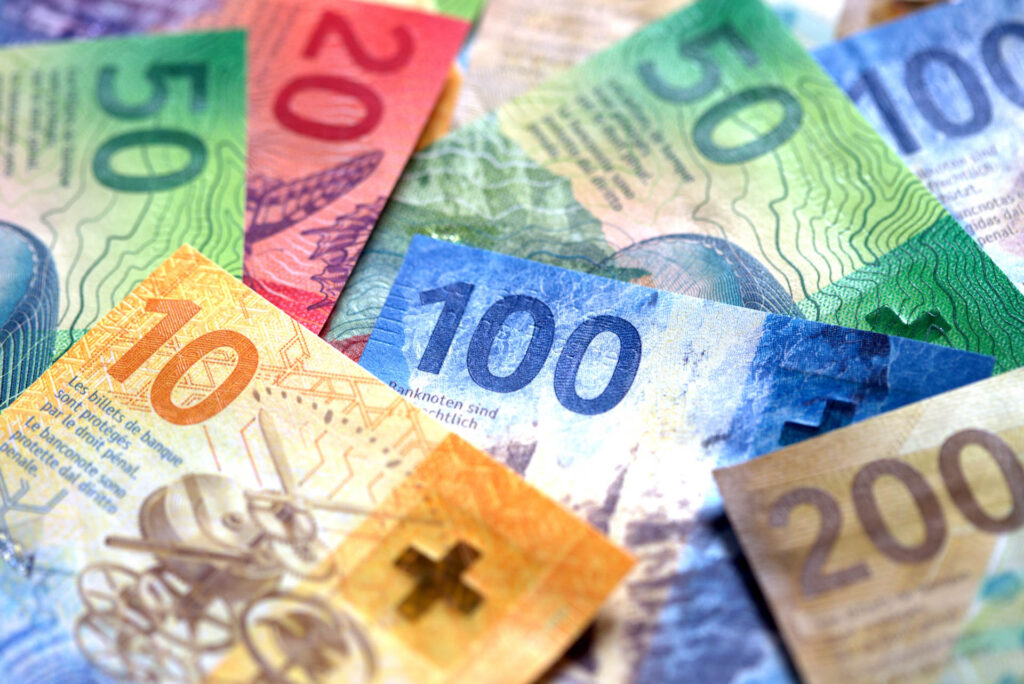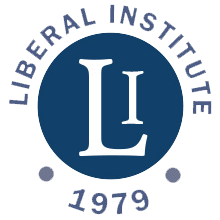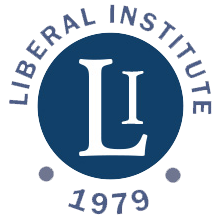
There are good reasons why the debate on cash is heating up right now. While European governments and central banks have stepped up capital controls in the last few years, cash has become the major hurdle for conventional monetary policy. Therefore, many economists, as well as a number of high-ranking government officials, have presented and reiterated their arguments in favor of the abolition of cash virtually at every opportunity.
Although most European citizens do not approve further restrictions on cash, the outcome of the political debate is open.
The political reasoning for a ‘European’ war on cash is based on an ideological mindset that is identical to what is heard across the Atlantic. What is different, however, is the popularity of the use of cash, which also differs from country to country within Europe.
Unlike the Scandinavians, who have largely moved to a cashless society, other countries still prefer to keep their notes and coins. Recent surveys show that over 70% of the German population opposes further restrictions on cash. Switzerland’s National Bank has announced that it will not follow other countries’ example of phasing out what is the world’s highest denominated bill (in terms of exchange rate value), the 1,000 Swiss franc note.
People’s attitude towards cash appears to be influenced by the cultural context of a nation. Germans, for example, have faced at least four monetary reforms in the last 100 years. The great hyperinflation in the 1920s must have left traumatic marks in the Germans’ consciousness.
Unlike the German currencies, the Swiss franc has never experienced monetary instability of comparable scale. It is rather the general suspicion toward government power that has led the Swiss to take a conservative stance towards cash.
Denmark and Sweden are at the complete opposite. These countries have officially passed legislation in order to discontinue cash step-by-step. The largest Scandinavian banks have recently stopped allowing cash withdrawals in most branches. Moreover, the financial industry has actively encouraged regulation limiting cash use in daily transactions in the name of fighting crooks and protecting the environment. Finally, Danish law leaves the decision whether to accept cash or not to the providers of goods and services; as of this year, clothing stores, restaurants, and gas stations are allowed to turn away customers who cannot pay electronically. It is literally a Scandinavian war against cash that has taken place in the last decade.
Internationally, initiatives against cash reflect the current interconnectedness of financial markets.
The emergence of a globalized financial system led to the regulation of cross-border payment transactions and capital flows. The original intent was to make it harder for criminals to channel in money that originated from crime. Regulation of cash deposits and withdrawals at banks was initiated as early as in the 1970s in the USA and in the 1980s and 1990s in Europe.
Today, and especially after 9/11, restrictions on cash have increased exponentially.
Most legislation is supposed to prevent money laundering and terrorist financing. However plausible these reasons are, they have also been blatantly misused in the war on cash. Since the European Union is competent in the field of anti-money laundering regulation, there has been great effort to harmonize national laws. The EU finance ministers called the EU commission “to explore the need for appropriate restrictions on cash payments exceeding certain thresholds” throughout the Union, and, to the same effect, the European Central bank announced its willingness to “examine the consequences of phasing out” the 500 euro banknote in February of this year. In the meantime, it has become clear that the production of 500 euro banknotes will be ceased after 2018.
Despite this political agenda and its questionable implementation, many countries of the Eurozone have already put in place strict measures: The French government tightened restrictions on cash payments and intensified monitoring of high-value withdrawals after the Paris terrorist attacks in November 2015; the upper payment limit was lowered to 1,000 euros. Italy went back to its former limit of 3,000 euros. Payments exceeding these amounts must be executed through a licensed bank.
While extending the scope of the anti-money laundering statute to non-financial intermediaries, even Switzerland now regulates transactions over 100,000 Swiss francs. Yet, it is unlikely that the political intention is to stop discriminating cash users at some point but rather to incrementally reduce the allowed transaction limits, and eventually, to discontinue the use of cash entirely.
Following the meltdown of the financial system in 2008, governments collaborated with the financial industry by bailing out large banks in an unprecedented way. As a consequence, public debt levels have surged. At the same time, interest rates are at the lowest possible, approaching zero.
We have reached a point in the fiat money system where even unorthodox monetary measures, such as ‘quantitative easing’ or ‘helicopter drops’, have missed their official goal of stimulating the economy. Newly printed money has barely been going into real capital production, but it has rather been inflating asset prices; instead of investing in new products and services, many businesses have recapitalized on better terms, performed buybacks or paid out dividends to their shareholders.
This is a good thing for banks because they are relieved from servicing “toxic assets;” however, such a monetary policy is not able to boost the economy in a sustainable manner. This is where cash comes in: Cash has become a real drawback according to mainstream economic theory. It limits the central bank’s ability to reduce short-term (nominal) interest rates below zero.
According to the concept of “zero lower bound”, if interest rates drop into negative (the Swiss National Bank is currently charging -0.75% for sight deposit account balances which exceed a certain threshold), bank account holders are encouraged to withdraw their savings and keep them as cash. Given that cash does not pay any interest, it is still better to hoard cash under the mattress than to leave it in the bank where it is charged negative interest or a fee. If falling rates exceed the costs of holding cash at home or in a safe deposit box, people will withdraw en masse.
It is obvious that banning cash would not build up confidence in the current system, but rather destroy the last bit of it, as recent data on growing cash circulation in the Eurozone, Switzerland and the UK indicate. The problem about this is that the viability of certain fiat currencies genuinely depends on substantial cash restrictions.
A little bit of tapering might be bearable for the US dollar, if interest rates return to pre-crisis levels. However, it will not be the case for the Eurozone and would provoke the exit of a member country. It is therefore essential to certain European countries (and to the EU itself) to increase the degree of financial repression in order to refinance their debts and deficits at the expense of the public.
If cash were abolished, any fiscal or monetary policy would be enforceable in the short run: Increasing negative interest would force bank account holders to spend their money or to invest it in riskier assets, such as bonds or stocks. Despite the disastrous effects on the economy, such as malinvestment, outright confiscation of wealth would hit account holders even harder: In a system where all money is electronic, bail-ins, capital levies, or seizures could be imposed on bank customers without them having the slightest chance to avoid those controls. It is obvious, though, that such a policy would pervert the original purpose of money, which is above all to securely store value.
Proponents of anti-cash policies too often forget the non-coercive character of money. Describing its emergence, the great Austrian economist Carl Menger points to the fact that “[c]ertain commodities came to be money quite naturally, as the result of economic relationships that were independent of the power of the state” (Principles of Economics, 1871, Auburn [2007], 262). In other words, banning physical cash would simply lead to the emergence of alternative means of payment that would outcompete official tender. A lot of people would start using near-money substitutes, such as gold or silver, or whatever commodity facilitates the exchange of goods and services instead. Ignoring this fact shows us how little mainstream economists know about the origin of money and how much they overestimate the validity of their policy advice. In other words, you cannot ban cash.
Another publicly advocated fallacy is the notion that cash is mainly used for covering up illicit activities. Experts, among them professor Friedrich Schneider from the University of Linz in Austria, have shown that money laundering actions are overwhelmingly conducted cashless through shell corporations that are located in different jurisdictions.
Actually, there are good reasons to oppose fiat currencies. They are inherently flawed due to a lack of competition. However, when it comes to the physical manifestation of fiat money, i.e. cash, there is a need to differentiate. In the existing context, cash truly means freedom, at least in the sense of less state control or more options to choose from.
Let us have a look at recent examples in Europe: Greeks have experienced far-reaching restrictions on cash withdrawals at the peak of the debt crisis and still ongoing, bank customers’ deposits in Cyprus were bailed in up to 50 percent in March 2013, and Italian and Portuguese bondholders have been forced to acquire stocks of insolvent banks for the last two years. These are all too familiar stories in Europe today; financial repression seems to be the political panacea to overcome the consequences of preceding government failure.
The abolition of cash would represent the logical next step in a series of detrimental government interventions. Yet, it would never justify such an extensive infringement of personal liberties.
When it comes to creeping state control, it is no surprise that certain European countries, such as France, are at the forefront. An electronic world would be far easier to both tax and control. Such a narrow view on the issue of tax evasion, however, completely ignores the root causes for tax evasion in the first place. Furthermore, the abolition of cash might reduce the black market economy at first, however it would just be a question of time until black markets would thrive even more.
Cash does not only mean privacy towards state agencies, but also towards data gathering companies. In other words, the end of cash is also the definitive end of privacy. A cashless society would give governments and businesses access to information and power over citizens in an unprecedented manner. Additionally, a cashless society is more prone to cybercrime: In Sweden, for instance, the number of electronic fraud cases has risen dramatically.
Considering the ubiquity of money in our society, no sphere of life would be left untouched. Physical cash offers a fallback option for the time governments become prohibitive or electronic systems break down; cash literally offers insurance to its owner and thereby protects him or her from the loss of freedom and property. Cash is said to be inefficient and primitive; however, anti-money laundering regulation has artificially increased costs for merchants who prefer cash. In a market economy it is not up to the banks (or the government) to decide on the means of payment, but to the consumer. And let us not forget: Cash is especially valuable to the billions of people who are unbanked or underbanked worldwide.
Finally, cash embodies the value of unconditionality. Cash is basically not dependent on a third-person or a private contract. It is not contingent on the solvency of banks or the effectiveness of the financial system. Unlike bank money, cash transactions are immediately cleared and settled. The same is true for bitcoin, which is why the cryptocurrency is called “electronic cash”. There is one but significant reservation to the principle of unconditionality: Cash remains dependent on the solvency of its issuer, the government.
There is one good thing about the ongoing political war against cash: It stimulates the emergence of alternative monies, such as cryptographically protected and/or gold-backed currencies. However, any success of those alternatives might provoke unprecedented government policies. The notable rise of bitcoin has already led to a number of regulatory responses: The State of New York requires brokers and exchanges to apply for a “BitLicense”; Switzerland adjusted its regulation concerned with anti-money laundering and terrorism financing in order to include transactions in virtual currencies in 2015.
The idea of an outright ban may seem far-fetched to some of us; however, the longer the interest rates stay low or negative, and the longer the economy does not get off the ground, the sooner unthinkable proposals could be argued as being without any alternative.
Cash is not an end in itself, but rather the indispensable means to exercise basic rights. Even if it were possible that hardly anything changed in a cashless society, the abolition of cash would de facto prejudice human behavior.
Cash is not about illicit activities, but enabling a lifestyle that does not harm others. Fyodor Dostoyevsky wrote in 19th century-Russia that “money is coined freedom;” today, we would probably correct him: Cash is coined freedom.
A version of this article was published in the Cayman Financial Review.
Tags:

Always stay up to date
Receive information about current publications and events around once a month.
The Liberal Institute is delighted to hear from you.
LIBERALES INSTITUT
Hochstrasse 38
8044 Zürich, Schweiz
Tel.: +41 (0)44 364 16 66
institut@libinst.ch
INSTITUT LIBÉRAL
Boulevard de Grancy 19
1006 Lausanne, Suisse
Tel.: +41 (0)21 510 32 00
liberal@libinst.ch
ISTITUTO LIBERALE
Via Nassa 60
6900 Lugano, Svizzera
Tel.: +41 (0)91 210 27 90
liberale@libinst.ch

Receive information in German about current publications and events about once a month.